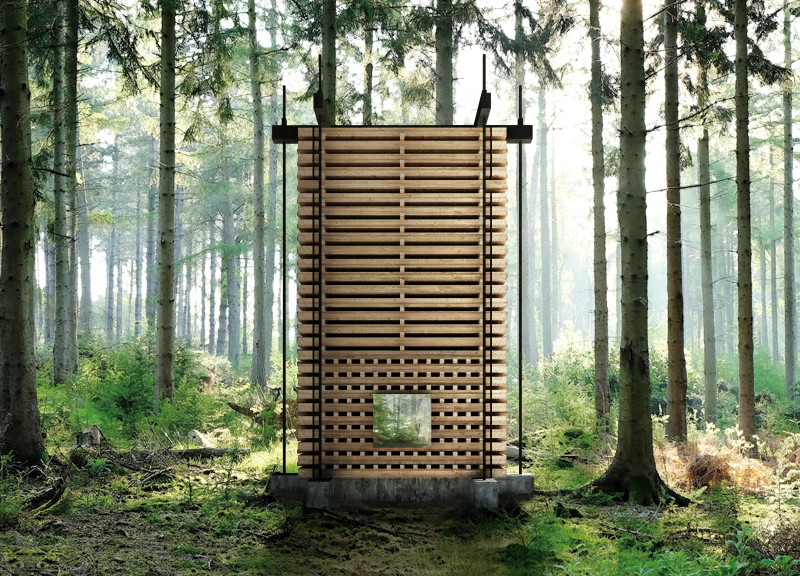5 key facts about this project
The OZOLINI CABINS project is located in a peaceful forest of pines, designed as a retreat for meditation and reflection. It combines simple forms with practical functions, inspired by the basic structures of early human dwellings. Each cabin offers a space for individuals to connect with themselves and their environment, promoting a sense of calm and well-being.
Design Concept
The design centers around creating a close relationship between the cabins and their natural surroundings. Each cabin features thoughtfully arranged spaces that support activities such as meditation, prayer, reading, and gathering with others. This layout invites occupants to engage deeply with nature, encouraging introspection and community interaction.
Materiality
Material choices emphasize the connection to the natural world. The cabins are built using stacked lumber for structural support, arranged carefully to maintain spatial efficiency while blending with the landscape. Flooring made from compressed tea leaves bonded with natural resin offers not only a tactile connection to the earth but also a pleasant aroma that enhances the meditation experience.
Inside, vertical pine boards line the walls, improving sound quality and reinforcing the cabins' connection to the environment. Above a height of 2.1 meters, double-glazed walls allow ample light to fill the cabins while providing expansive views of the forest. This design feature ensures comfort in varying weather conditions while maintaining a strong link to the outdoors.
Nighttime Presence
As evening falls, the cabins become warm sources of light in the darkened woods. The interaction of light and shadow creates a welcoming environment. Gathering around the central campfire encourages shared experiences, while solar lights mark pathways to guide guests safely through the surroundings.
The careful framing of views and the inviting textures of materials work together to establish a strong sense of place. Occupants feel anchored in the setting, surrounded by nature and open sky.



























